Whoever did this: thank you! This is useful information. Especially for me and my husband!
8 Critical Periods in a Child’s Life That Every Parent Should Know About
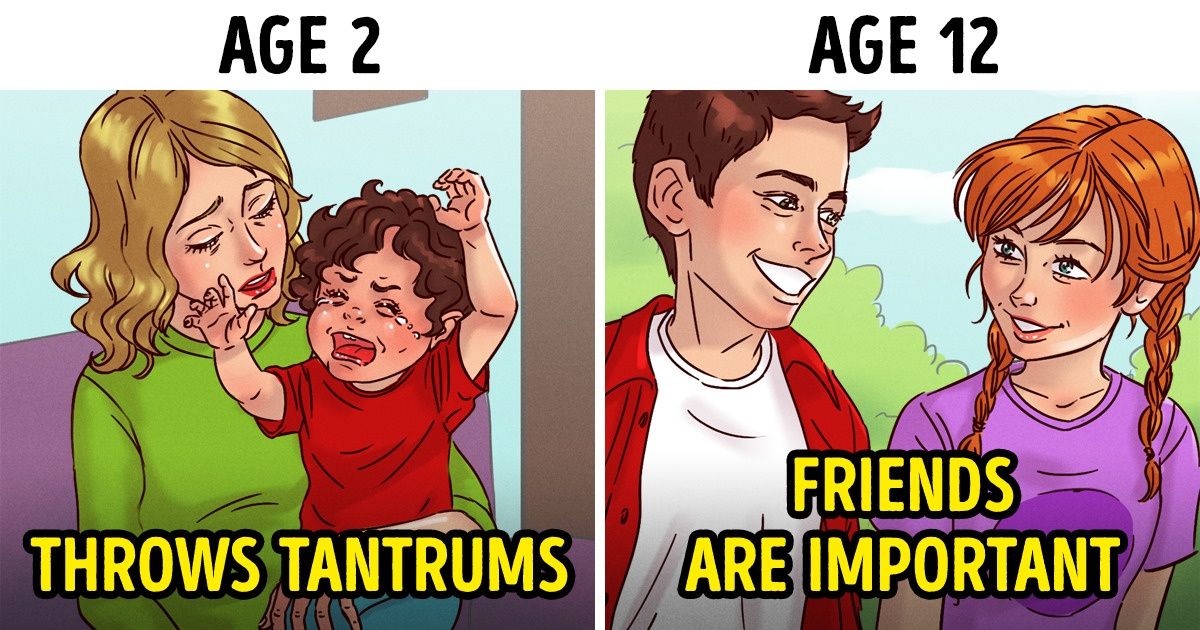
Knowing what kind of behavior to expect from your kid can make your life as a parent a lot easier. Your 4-year-old’s aggressive behavior might not only get on your nerves but also make you wonder if you’re a good parent at all. However, it’s normal for kids of this age, and the important thing is to be prepared and know how to deal with such situations.
We at Bright Side think the secret to great parenting lies in knowing in advance what behavioral and emotional peculiarities your child is going to have at every life stage. Let’s see what they are!
Newborn to 3 months
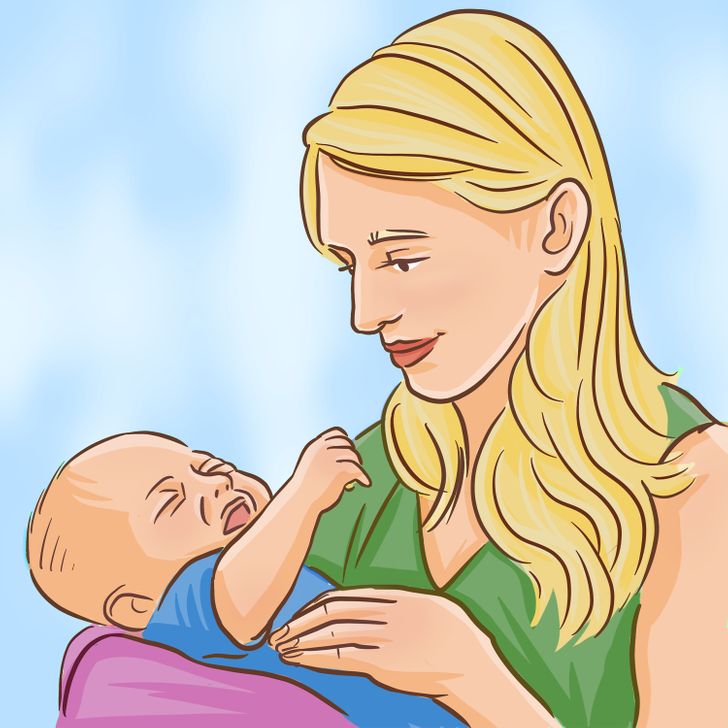
At this age, crying is the main way your baby can communicate their needs. And as a parent, you will learn to feel the difference between a cry that means your baby is hungry, tired, or feels some discomfort.
However, sometimes your child can start crying for no apparent reason and it’s important to always react to that and comfort the baby with touch and words. They need to feel that they’re safe, that they’re loved, and that they can trust you. Newborns can sense emotion in your voice, so it needs to be soothing and friendly to make the baby feel secure.
It’s also recommended that you sing to them, talk to them face-to-face, and swaddle them in a blanket to make them feel safe and to prevent them from making sudden movements that could startle them. Holding the baby in your arms and rocking them also creates an atmosphere of safety for them.
4 to 6 months
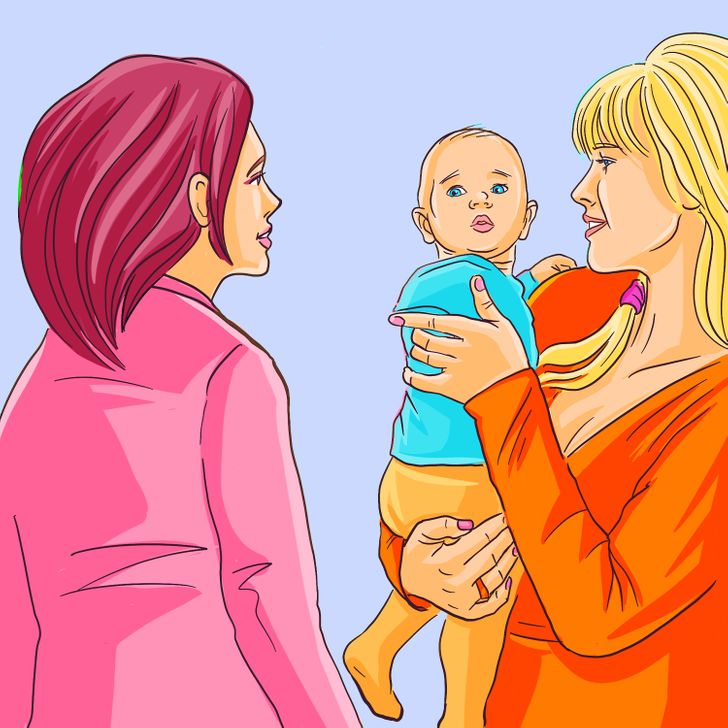
Your baby can laugh, squeal, coo, or gurgle in response to what you’re saying to them or to toys. So it’s great if parents encourage them to laugh by making funny faces, for example. At this age, children become more aware of people around them, other than mom and dad, and they can recognize familiar faces and objects. Now it’s time to start introducing them to other children and people.
7 to 12 months
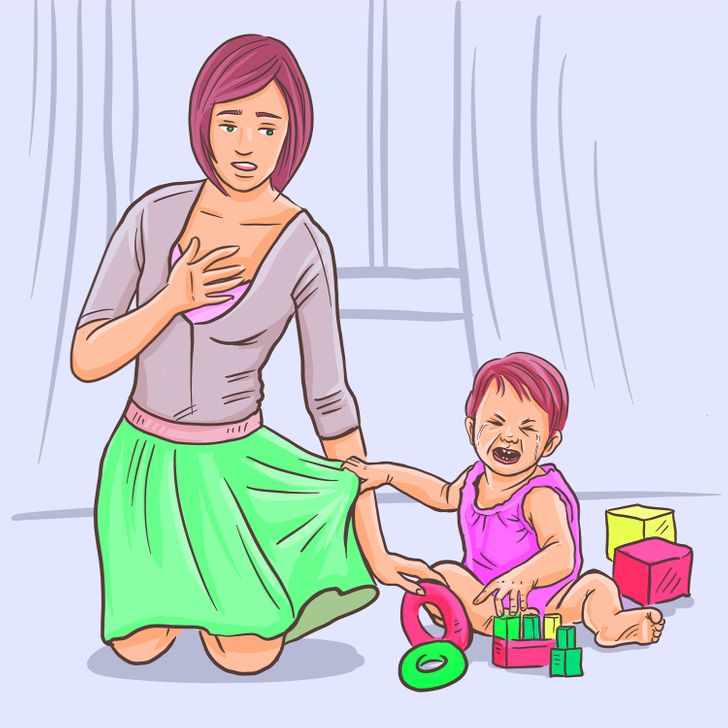
At this point, babies start to prefer their moms above everyone else, and they might be afraid of strangers. They cling to their parents and cry when they leave. To avoid that, you can walk away for short periods of time while your baby is playing in a safe area to show them that you’ll always come back.
1 to 2 years
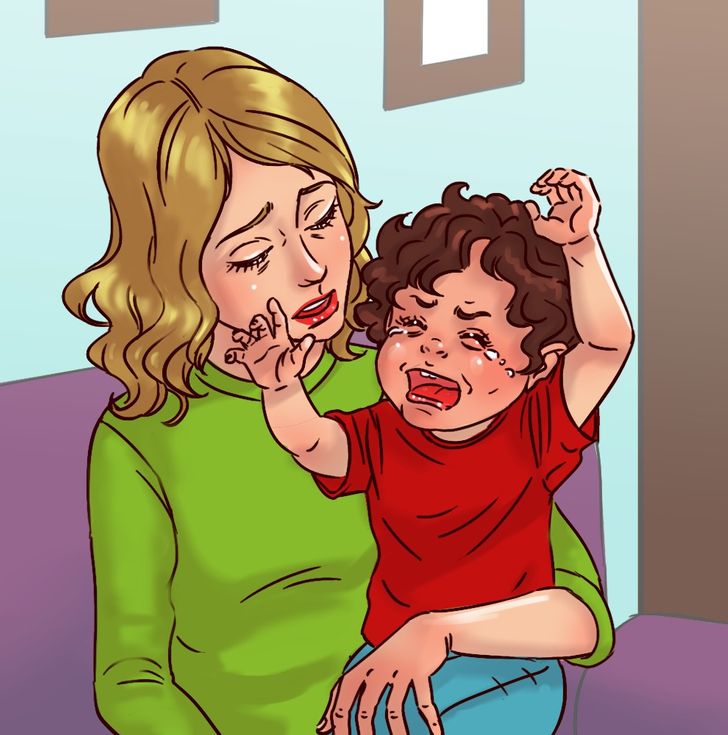
Children of this age should have more social interactions and experiences outside of the home. However, when they play among other children, they don’t really interact yet and they don’t understand the concept of sharing. Temper tantrums are common, so it’s important to discipline your children but without yelling or hitting them.
3 years
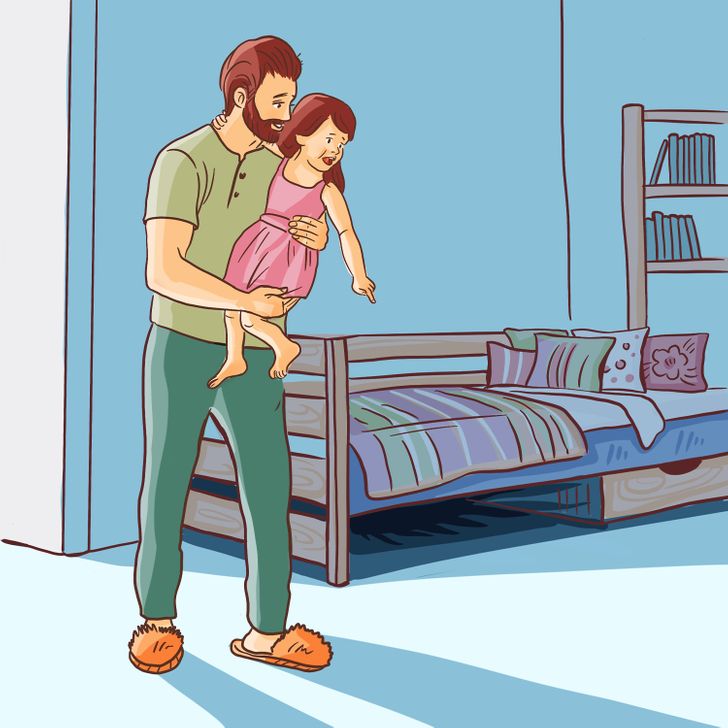
Now your child begins to play with other children and shares toys with them, and it’s important to encourage them to do that. Temper tantrums become less common. Your 3-year-old might start being afraid of certain things, like the dark or a monster under their bed.
You should also encourage them to do as much as possible on their own, and tell them how proud you are when they show you a picture that they’ve drawn, a figure they’ve made out of Play-Doh, or anything else they’ve done on their own.
4 to 5 years
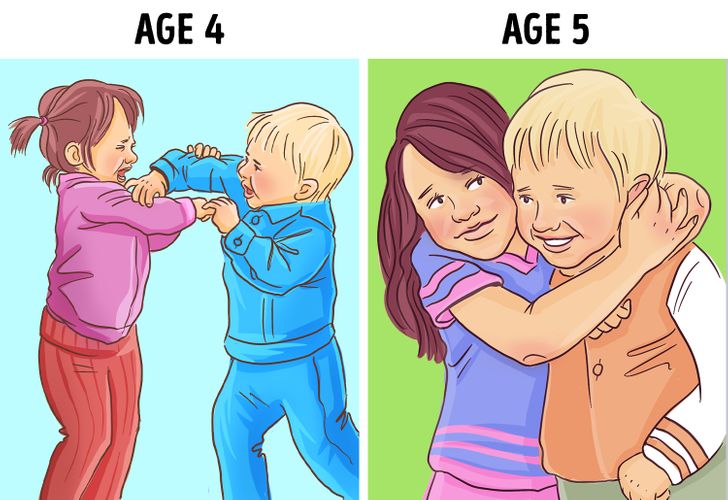
Children of this age can follow the rules, but they don’t understand what’s right and what’s wrong yet. They want to be more independent and they believe their thoughts can make things happen, so it’s important to encourage them to make choices on their own. They’re also more curious about the world.
4-year-olds can have mood swings and even become aggressive, fight with siblings, and threaten to run away. In contrast, 5-year-olds get along with parents, they have better manners, they are more responsible, and they want to make others happy.
This is when you should teach your child how to express anger appropriately and put them in time-out if they misbehave. You should encourage them to talk openly about how they feel and compliment them on good behavior.
6 to 12 years

Friends become extremely important at this time and romantic relationships might start to interest your child. At this age, children might be jealous of others. They like being a part of clubs and groups, and they enjoy engaging in competitive games. At this point, you should teach your child self-disciple and how to respect and listen to adults. You should also try to spend as much quality time together as possible.
13 to 18 years

Teenagers often compare themselves to others, and being accepted by their peers is very important to them. That’s why you should teach them how to deal with peer pressure and stress, and also encourage them to talk about their feelings and worries openly. Romantic relationships become even more important at this time, and they want to be more independent.
What were your children like when you were raising them? What else should parents be prepared to deal with? We’d love to hear your thoughts in the comments!
Comments
8 critical periods? This is more like "what should you know about your kids from age x to age y" :p
This is some handy info for when I become a mother, I was always so scared of this but thanks to many articles on here I think I know what I should and shouldn't do
Related Reads
15 Stories That Prove Kindness Is Courage We Often Mistake for Weakness
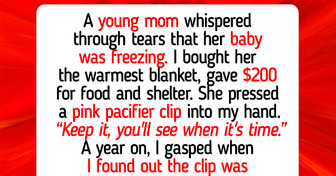
My Brother Has No Kids but Refuses to Share His Inheritance With Mine—I’m Furious
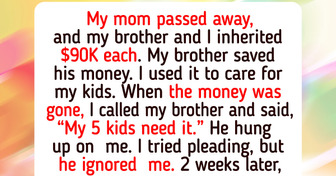
A Stranger Humiliated My Daughter at Disney World—He Picked the Wrong Mom to Mess With

10 Moments Where Kindness Didn’t Argue—It Acted

I Refused to Let a 5 Y.O. Attend My Daughter’s Party—Now They Say I’m Cruel
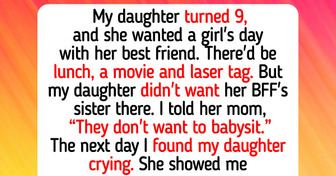
I Refuse to Give Up the Passenger Seat for My MIL—She Should Learn Her Place

I Refuse to Be a Free Slave in My Mom’s Business, Just Because We’re Family
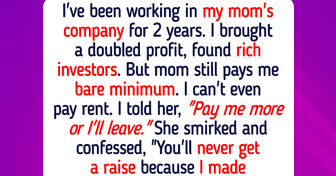
I Canceled My Sister’s Free Childcare—Her Cruel Words Cost Her My Support
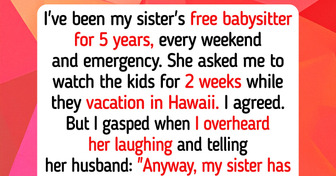
My DIL Pretended She Doesn’t Know Me in Public, and It Shattered Me

10 Christmas Gifts That Missed the Mark So Badly They Became Legendary

12 Stories That Show the Bravest Thing You Can Do Is to Be Kind

12 Life Moments Where Quiet Kindness Played the Main Role
